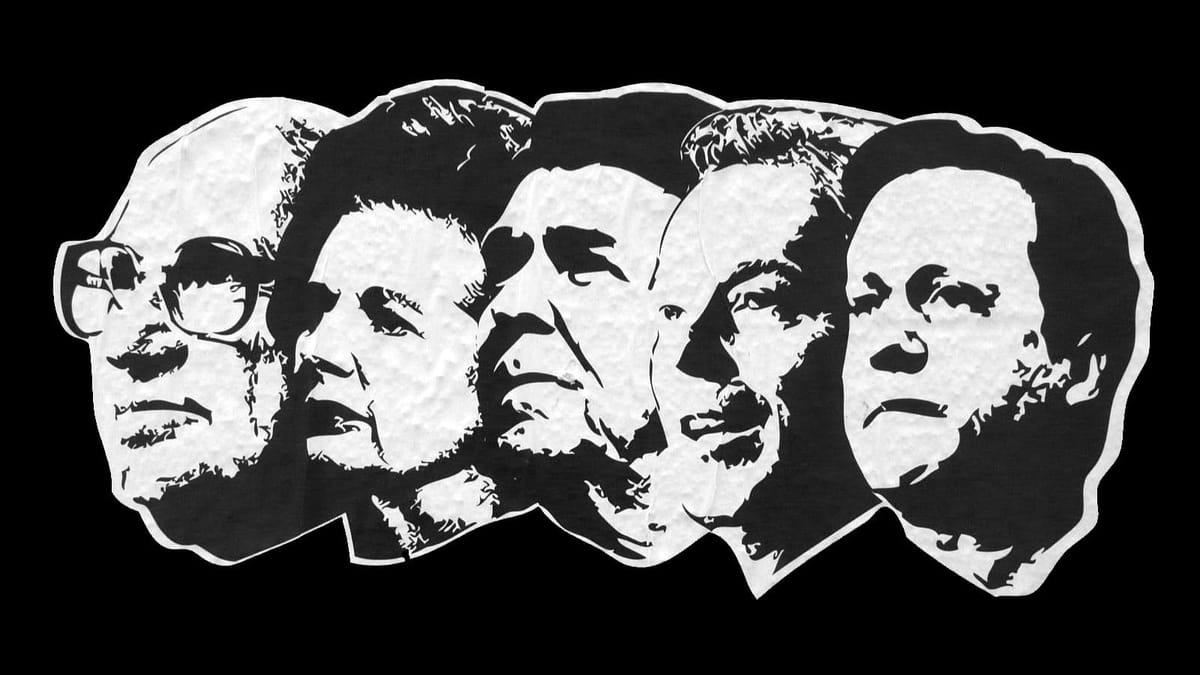What is a neoliberal agenda?
In the U.S., and around the world, both the Democratic and Republican party establishments are (and have been for some time) committed to a “neoliberal agenda.” So, maybe it’s important to understand precisely what is a neoliberal agenda?

In the U.S., and around the world, both the Democratic and Republican party establishments are (and have been for some time) committed to a “neoliberal agenda.”
So, maybe it’s important to understand precisely what is a neoliberal agenda?
The Neoliberal Agenda
Here is the definition given by Google AI:
The neoliberal agenda is a policy model that promotes the expansion of free-market capitalism through reduced government intervention, privatization, deregulation, free trade, and fiscal austerity. It emphasizes shifting economic control from the public to the private sector, believing that this leads to greater efficiency, individual freedom, and overall prosperity. This agenda advocates for minimizing government spending on social programs and limiting the state's role to protecting private property and facilitating global commerce.
Here’s a breakdown:
Free-market capitalism: The belief that free markets, guided by supply and demand, are the most efficient way to allocate resources and drive economic growth.
Deregulation: Removing government rules and regulations on industries, particularly in the financial and telecommunications sectors, to foster competition.
Privatization: Transferring ownership and control of public services and state-owned enterprises, such as utilities and schools, to the private sector.
Fiscal austerity: Reducing government spending, especially on public services and social welfare programs.
Free trade: Eliminating barriers to international trade and commerce.
Limited government: Reducing the size and scope of the state, with its role limited to protecting private property, enforcing contracts, and maintaining national security.
Examples of Neoliberal Policies
Policies implemented in the US and UK during the 1980s, by Ronald Reagan and Margaret Thatcher, are frequently cited examples of the neoliberal agenda in practice.
The deregulation of the airline industry under President Jimmy Carter is an early example.
The signing of “Free Trade Agreements” like NAFTA under President Bill Clinton, which supported policies aimed at reducing trade barriers which benefit global corporations with globalized supply chains and labor pools.
A failure to raise minimum wages for workers.
Effects Of Neoliberalism
The effects of Neoliberalism include:
Increased Inequality: Wealth and income tend to concentrate among the top earners, widening the gap between the rich and the poor.
Reduced Social Safety Nets: Cuts to public services and social welfare programs disproportionately affect a majority of the population.
Economic Instability: Deregulation of the financial sector has been linked to increased risk and the collapse of the financial system, such as the Great Recession of 2008.
Environmental Degradation: The emphasis on unchecked corporate freedom and profit taking has driven increased pollution and emissions.
Erosion of Democracy: Prioritizing business interests over public needs leads to increased economic power for business elites that circumvents democratic processes and reduces the ability of citizens to effect change through voting.
What A “People First Agenda” Looks Like
Increased Equality and Wealth Redistribution: Instead of concentrating wealth among a small group of top earners, promote and enact policies aimed at eliminating poverty by closing the gap between the rich and the poor. Support progressive taxation systems, strong labor protections, fair wages, and regulations that ensure wealth is more evenly distributed across the population. The goal is to ensure shared prosperity.
Expanded Social Safety Nets: Promote robust funding and expansion of public services and social welfare programs. This ensures the establishment of a comprehensive safety net which includes: universal healthcare, tuition-free public education, social security, and unemployment benefits—that protects all members of society, particularly the working class, from economic hardship.
Economic Stability and Regulation: Require strong government oversight via local and regional Citizen Councils. Focus on proactive regulation of the financial, healthcare, real estate, and education sectors. The goal is to prevent excessive risk-taking and protect workers, social services programs, and the overall economy from collapse, to ensure that market activity aligns with and serves public well-being rather than generating profits for shareholders.
Environmental Protection and Sustainability: Prioritize environmental stewardship over corporate profits. This involves strict environmental regulations, setting requirements for investments in sustainable practices and renewable energy, and enacting policies that hold corporations accountable for their environmental impact and require them to actively reduce pollution and overall emissions.
Strengthened Democracy and Public Accountability: Prioritize public needs and citizen engagement over the interests of business elites. Reposition the role of a business as being “to deliver measurable value to the community that aligns with community priorities.” Severely limit the influence of money in politics, ensure transparency in governance, and use technology to greatly expand the ability of citizens to effect change through voting and direct democratic participation, thereby ensuring that economic decisions are accountable to the majority.
The Current State Of Affairs
Capitalism is inherently undemocratic because it moves wealth, power, and decision-making authority into the hands of a wealthy minority (owners and managers), rather than distributing it equally among the people.
Capitalism concentrates wealth and political power among Wealthy individuals and corporations who use their financial resources for campaign finance, lobbying, and media control to effectively buy policy decisions in their favor. Capitalism effectively "drowns out the voices of the People".
The Future
People First Power combined with scientific knowledge and democratic values has the potential to reinvent global society in ways we have not yet seen.
Everyone benefits from well-managed People First Power. Everyone gets a high-quality baseline standard of living, more stable and secure communities, and improved quality of life.


